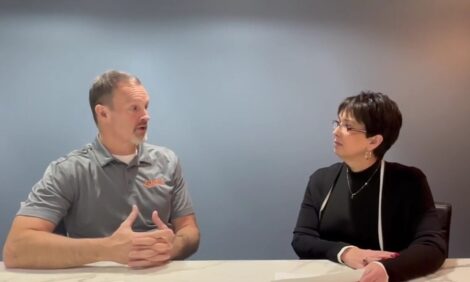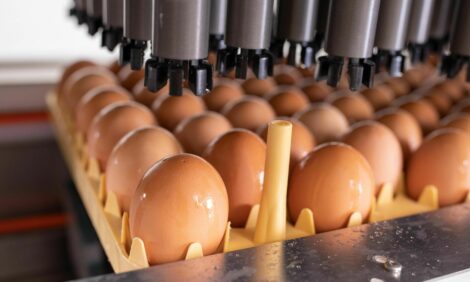



UNE researcher wins 2022 Science and Innovation Award
Dr. Amy Moss knows there's a lot more to producing the optimum egg than meets the eyeCracking open an egg with a hard shell and a perfect golden yolk might seem like it's just the luck of the draw, but UNE poultry nutritionist, Dr Amy Moss, says there’s a lot more that goes into producing the optimum egg than meets the eye.
“The amount of protein and calcium that a chicken is fed can greatly affect the quality of an egg, while research shows the time of day these nutrients are consumed can also make a big difference,” she says.
“For example, studies have shown that it’s beneficial to feed hens two diets; one in the morning that has more protein while the chicken is ovulating the egg yolk, and another in the evening that contains more calcium while they’re laying down the eggshell.”
However, with feed already the costliest expense for Australian egg producers, providing a double diet isn’t practical, as it would require farmers to invest in building additional feed silos.
Dr Moss is finding a solution to this problem, and it’s an idea that has seen her win the $22,000 Australian Eggs Award in the 2022 Science and Innovation Awards for Young People in Agriculture, Fisheries and Forestry.
“I’m going to trial the efficacy of giving hens more calcium in the evening through their water, rather than feed, which will come at no additional cost to producers as they can use existing infrastructure,” she says.
Over the 10 weeks we’ll be measuring feed and water intake, egg production and quality, the feather condition of the hens, their bone strength and health, and the calcium status of the hens.
“Most producers already have dosing systems that can provide medication through the water, so essentially, they would just add the liquid mineral to the dosing system to automatically bring it to all the hens in the evening.”
If successful, not only would this method be cost effective, but Dr Moss says it could contribute to improving the health of laying hens.
“If chickens don’t get enough calcium, they take it out of their bones,” she says.
“This negatively impacts the health of the hen, as well as the egg quality, so finding a way to make sure we’re feeding them the right amount of calcium at the right time is very important.”
The trial will involve 360 hens, and is set to run over a 10-week period at UNE’s free range laying hen research facility.
“Over the 10 weeks we’ll be measuring feed and water intake, egg production and quality, the feather condition of the hens, their bone strength and health, and the calcium status of the hens,” says Dr Moss.
“This will give us an overall picture of the birds’ health, and if their production and health has improved with the increased calcium given over the evening.”
Read more about the 2022 Science and Innovation Awards here.








